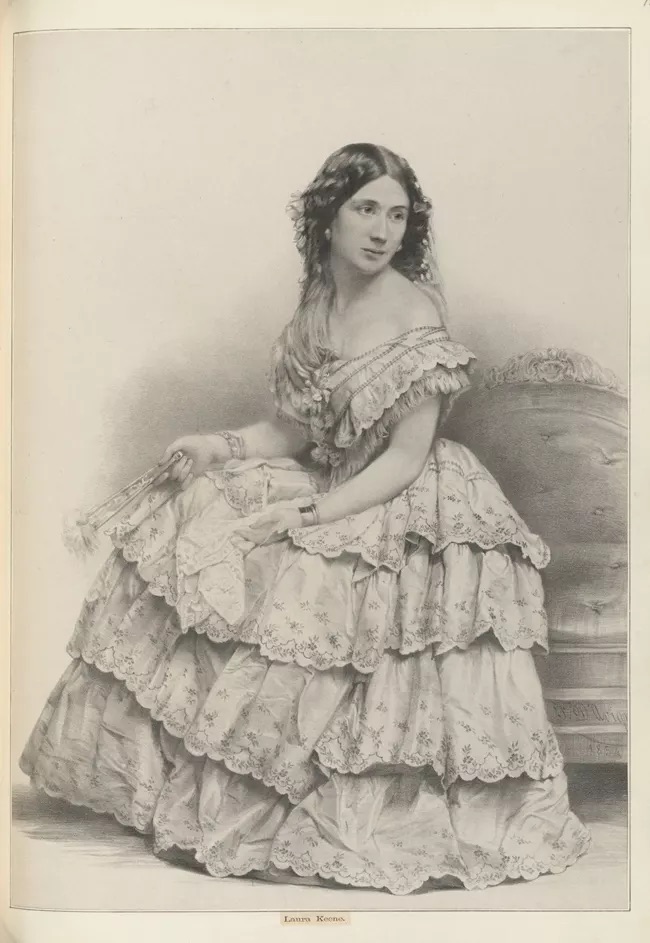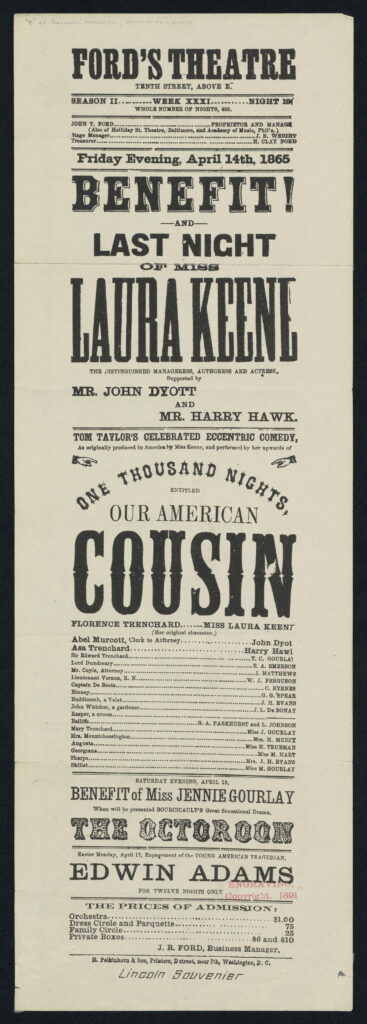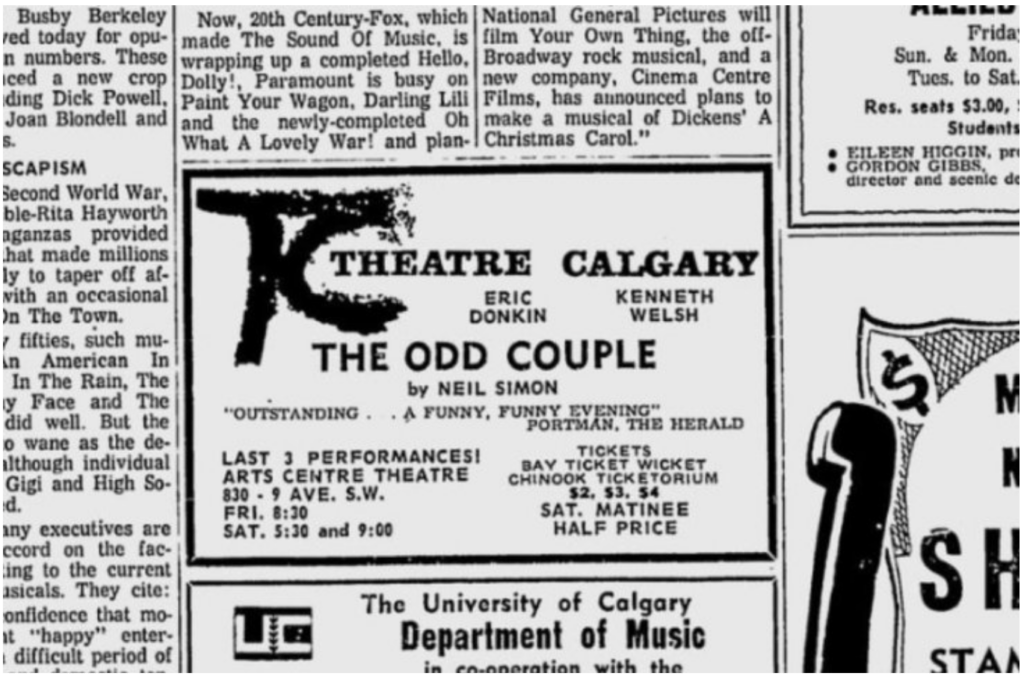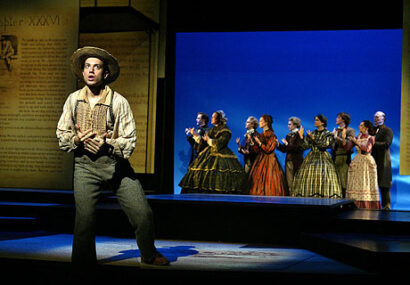July 1873 (150 years ago)


Actress, theatre manager, and director Laura Keene suffered a debilitating stroke after an illness. The London-born actress had come to the United States in 1852 at the young age of 26 and was a well-respected performer, known for her strong voice and “un-stagey” acting style. A year later she opened the Charles Street Theatre, her first theatre in Baltimore, making her one of the first female theatre managers in the U.S. She became most widely known for headlining the ill-fated benefit production of Our American Cousin at the Ford’s Theatre on April 15, 1865. After John Wilkes Booth shot President Abraham Lincoln, pandemonium broke out in the theatre. Keene calmly begged the audience to maintain peace and order, saying, “For God’s sake, have presence of mind, and keep your places, and all will be well.” Some stories of that night say that Keene then rushed to the President’s box, laying Lincoln’s head on her lap while a doctor attempted to revive him. Keene continued to perform for many years, but by 1872 her health began to wane. Following her stroke in 1873, her family began to make arrangements for her passing, including taking possession of the blood-stained dress from that storied night in 1865. Laura Keene died on Nov. 4, 1873.
July 1923 (100 years ago)
Ku Klux Klan member and Denver mayor Benjamin Stapleton fired the city’s only remaining show censor, Bernice Kirby. Mrs. Kirby attended many theatrical and film productions throughout Mile High City, serving in the title of “amusement inspector” for four years, while drawing in a salary of $120 a month. Her firing came amid national demands for increased censorship of theatre in 1923. In May, God of Vengeance found itself in court in New York on charges of “unlawfully advertising, giving, presenting, and participating in an obscene, indecent, immoral, and impure drama or play,” owing to its depictions of sex work, poverty, and homosexual romance. The publicity of this and other controversial plays prompted the editors of Theatre magazine to prescribe more censorship, saying that “official control seems the only remedy” to the “flood of filth and indecency” on American stages. Stapleton, having just won his mayoral race, spent much of his campaign denying his ties to the Klan and portraying himself as egalitarian leader, calling prejudice and intolerance “un-American.” Indeed, some saw the firing of Bernice Kirby as an demonstration of his more moderate turn. On the other hand, in late 1923 the Klan-produced film The Toll of Justice began to tour the U.S. and was censored in some American cities. That same year, Stapleton also appointed several Klan members into city government and police.
July 1968 (55 years ago)

Theatre Calgary was created through the merger of two young community theatre organizations: the Musicians’ and Actors’ Club and Workshop 14. Workshop 14 formed in 1944 by students of Betty Mitchell, a former biology teacher turned high school drama director who inspired generations of young theatrical artists. The Musicians’ and Actors’ Club begun in 1963 as a social club for amateur artists. Under the leadership of Christopher Newton, Theatre Calgary’s inaugural artistic director, the theatre became one of Calgary’s first professional theatre organizations. Their first performance, that November, was a production of Neil Simon’s The Odd Couple.
July 2003 (20 years ago)

Under the direction of Jeff Calhoun, the Deaf West production of Big River opened on Broadway in collaboration with Roundabout Theatre. Transferring to New York from critically acclaimed runs at the Deaf West Theatre in North Hollywood and L.A.’s Mark Taper Forum, the production made a splash on Broadway, garnering three Tony Award nominations. The production used both Deaf and hearing actors to retell Mark Twain’s lush musical fable. In his New York Times review, Ben Brantley wrote, “What the Deaf West production wisely emphasizes is the story theatre aspect of the show and a sense that the telling of tales can assume many, equally valid forms.” The Broadway cast won the Honor for Excellence at the 2004 Tony Awards.


